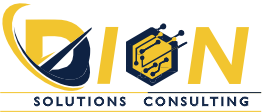PROJECT MANAGEMENT PROFESSIONAL (PMP) TRAINING COURSE
PMP Training Course
The Project Management Professional (PMP) training course typically consists of several components designed to provide participants with the necessary knowledge and skills to become a certified PMP. While the exact structure and content of the course may vary between training providers, here are the standard components you can expect to find:
- Introduction to Project Management: This module overviews project management principles, terminology, and the PMP certification process. It helps participants understand the importance of project management and sets the foundation for further learning.
- Project Management Framework: This module covers the fundamental concepts and processes of project management, including the project life cycle, project stakeholders, organizational structures, and various knowledge areas defined by the Project Management Institute (PMI).
- Project Integration Management: This component focuses on the processes and activities required to effectively coordinate all project elements and change control. Topics may include project charter development, project plan development, change control, and closure.
- Project Scope Management: This module addresses the processes involved in defining, managing, and controlling project scope. Participants learn about requirements gathering, scope statement development, work breakdown structure (WBS), scope verification, and scope control techniques.
- Project Time Management: This component explores techniques and methodologies for effectively managing project schedules. Topics typically include activity definition, sequencing, duration estimation, schedule development, schedule control, and critical path analysis.
- Project Cost Management: This module focuses on the processes and techniques involved in estimating, budgeting, and controlling project costs. It covers cost estimation methods, cost budgeting, cost control techniques, and earned value management.
- Project Quality Management: This component examines the processes and activities required to ensure assurance and deliverables meet defined quality standards. Participants learn about quality planning, quality assurance, quality control, and various quality management tools and techniques.
- Project Human Resource Management: This module addresses the management of project team members, including topics such as organizational planning, staff acquisition, team development, and performance management.
- Project Communications Management: This component covers the processes and strategies for effective project communications. It includes topics such as communication planning, information distribution, performance reporting, and stakeholder engagement.
- Project Risk Management: This module explores techniques for identifying, analyzing, and managing project risks. Participants learn about risk planning, identification, qualitative and quantitative risk analysis, risk response planning, monitoring, and control.
- Project Procurement Management: This component focuses on the processes and best practices for procuring goods and services for a project. It covers procurement planning, bidder selection, contract administration, and contract closure.
- Professional Responsibility and Ethics: This module addresses project managers’ ethical considerations and professional responsibilities. It covers the professional code of conduct, stakeholder management, and social responsibility.
In addition to these core components, PMP training courses often include practice exams, case studies, group discussions, and real-world examples to reinforce learning. Some training providers also offer additional resources and study materials to support participants in preparing for the PMP certification exam.
PRICE: $750.00
- 5 - 6 WEEKS
- MATERIALS & RESOURCES
- PREPARATION FOR EXAM - 100 PASS GAURANTEE
- FLEXIBLE PAYMENT PLANS
- MENTORSHIP AND FOLLOW UP
REGISTER NOW!
PRICE: $750.00 CAD
- 5 - 6 WEEKS
- MATERIALS & RESOURCES
- PREPARATION FOR EXAM - 100 PASS GAURANTEE
- FLEXIBLE PAYMENT PLANS
- MENTORSHIP AND FOLLOW UP



